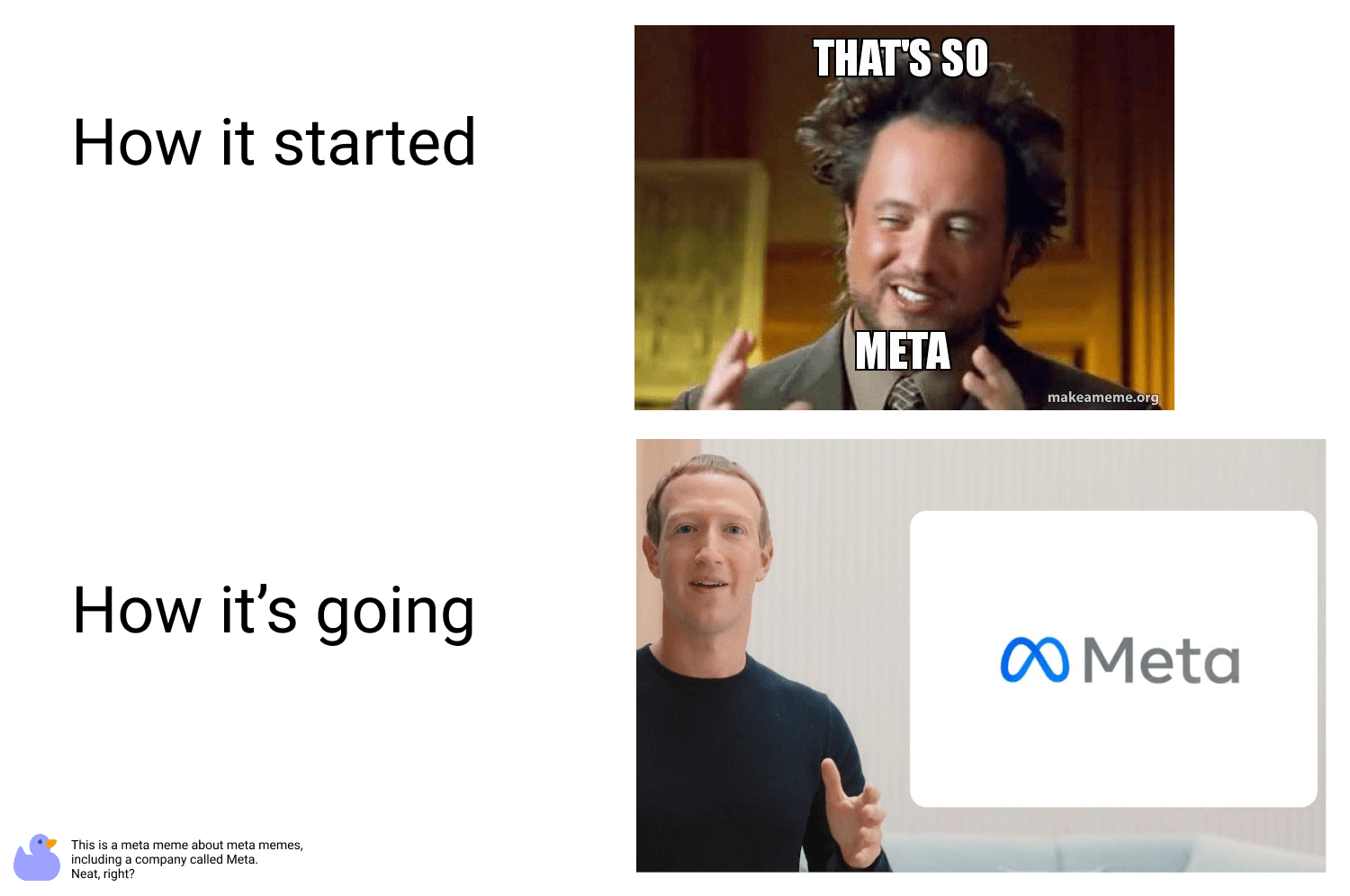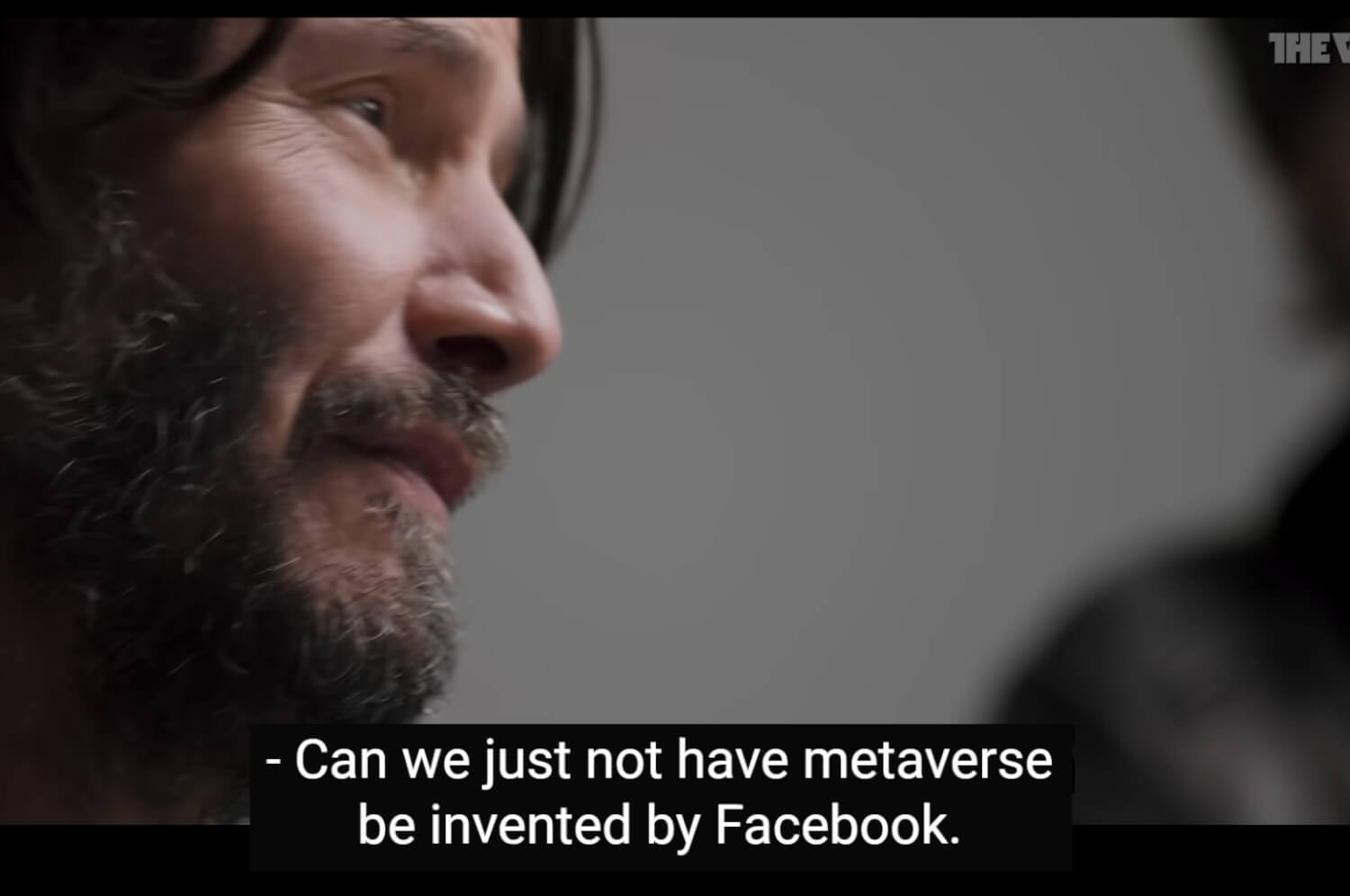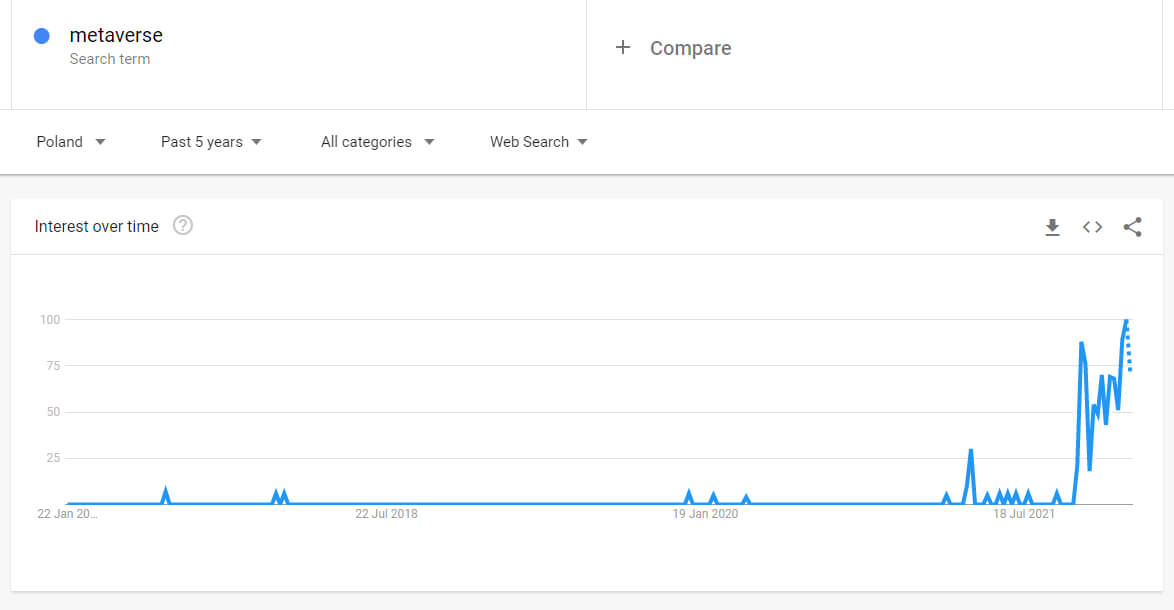New marketing buzzword dropped—Metaverse! As with Digital Transformation or Web 3.0, executives everywhere are wondering if it’s worth paying attention to the “new” Metaverse space. Let me tell you all about it.
It’s funny how words change meanings. “Meta” used to mean “about”. For example, meta data is just information about your data.
If you take a picture, the picture is the data, but it's not all that is created. Your digital camera also imprints the time, date, camera type, network information and more in your picture’s metadata.
“Meta” had also been a term favored mostly by young adults, who’d use it to describe self-referential memes.

Now, “Meta” is the name of Mark Zuckerberg’s company.
One artist with the Instagram handle “Metaverse” and 10 years worth of work on her account was suddenly shut down because she was apparently infringing on the new trademark.
Just like Meta, other organizations (and their marketers) are going to try to sell you on the Metaverse idea.
Don’t get too excited.
The truth is, the metaverse has been here since the ’90s. You could even say that it’s been here ever since human beings developed the ability to be creative and imagine things.
Zuckerberg Didn’t Invent The Metaverse 🙅♀️
As Keanu Reeves told the Verge, “can we just not have metaverse be invented by Facebook?”. He goes on to say that the concept is much older than Facebook itself. Keanu’s right and I’m here to help spread the gospel.

Most of the sources I checked (including Time magazine) trace the word "Metaverse" back to a 1992 dystopic novel "Snow Crash" by Neal Stephenson. But the idea of a metaverse has always been a part of our lives.
If you had ever used your imagination to visualize your future or past, then you've been in your own metaverse. If you ever used a computer to browse the web, used online banking, played a video game, or used your phone to message someone, you were in the global, digital metaverse.
Do you see where I’m going with this? We’ve been living most of our lives in the digital metaverse for at least two decades. If anything, all of this metaverse hype is too little, too late. Nobody needs an introduction to the metaverse.
We’re already livin’ it, baby!
Marketers and entrepreneurs are breaking their backs trying to sell you on this idea as if it's new. That's just painfully ignorant.
The underlying digital technology hasn't really changed much in the past few decades, and the most important technological advancements never reach the media hype. But you wouldn't know that from looking at the false reality created by marketers who keep trying to sell us on the "next big thing".
But Why Is The Metaverse So Hyped Up Now? 🤔
TL;DR: It's Facebook. It's all because of Facebook.
Mark Zuckerberg announced his Metaverse bet in the summer of 2021. The word was pretty much nonexistent online previous to that moment, and it really rocketed up in popularity since then.

In the world of digital technology, which is supposed to be teeming with creativity and disruptive ideas, pretty much everybody follows the big dogs (FAANGs and other organizations of that ilk).
Whether on purpose or by accident, all that this metaverse hype does is distract. If you google “Facebook lawsuit”, you’ll see a very long list of legal problems that the organization is facing. I just googled it now (17.01.22), and got several articles about Facebook facing a $3.2 billion class-action lawsuit in the UK over market domination.
But hey, there are no lawsuits in the metaverse, right?

Now that the term “metaverse” is out there, every chihuahua in the game is going to try to follow the big dog and bark the same message in hopes of improving their bottom line.
This is very much the same as when Long Island Ice Tea added “blockchain” to their name during the days of blockchain hype, and their share price suddenly jumped 432%.
It’s no different from any market fad. Built on false promises, and usually completely fugazi upon close investigation.
Metaverse Verdict—Invest, or Avoid? 💸
Any company that is suddenly working very hard to be in the Metaverse space is either doing it for a cash grab or to secure future market positioning.
It might be worth investing in a metaverse project, but only if it has solid fundamentals.
If all that a project has going for it are many hyped-up keywords attached to it (“Distributed Blockchain Metaverse AI-Powered Platform”), immediately a big, red warning sign should appear.
If it’s a metaverse-related project with a validated customer base, a solid plan for growth and strong fundamentals to boot, then it might be worth your investment.
And remember, if anyone tells you that the metaverse is new, you can confidently tell them that the metaverse is as old as the human race.
Thoughts, questions? Let me know on Linkedin.
Thanks for reading!
Article edited on 20.01.2022 to add information about Google Trends and Mark Zuckerberg's Metaverse announcement, as well as origin's of the word "Metaverse" and a link to Time magazine.










 Angry Nerds (Poland)
Angry Nerds (Poland) Angry Nerds (USA)
Angry Nerds (USA) Angry Nerds (Canada)
Angry Nerds (Canada)



